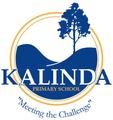Privacy Notice

Privacy Collection Notice
Information for students, parents and carers
The Department of Education (the department) values your privacy and is committed to protecting the personal and health information that schools collect.
All school staff must comply with Victorian privacy law and the Schools’ Privacy Policy. This notice explains how the department, including Victorian government schools (schools), handles personal and health information. On occasion, specific consent will be sought for the collection and use of information, for example, for a student to receive a health service. Our schools are also required by legislation, such as the Education and Training Reform Act 2006, to collect some of this information.
Throughout this notice, ‘staff’ includes principals, teachers, student support service officers, youth workers, social workers, nurses and any other allied health practitioners, and all other employees, contractors, volunteers and service providers of the school and the department.
On enrolment, and during the ordinary course of a student’s attendance at a school, schools will collect information about students and their families for the following purposes:
- educating students
- supporting students’ social and emotional well-being, and health
- fulfilling legal obligations, including duty of care, anti-discrimination law, and occupational health and safety law
- communicating and engaging with parents
- student administration
- school management
- supporting policy in relation to student education and well-being.
If this information is not collected, schools may be unable to provide optimal education or support to students or fulfill legal obligations.
For example, our schools rely on parents to provide health information about any medical condition or disability that their child has, medication their child may take while at school, any known allergies, and contact details of their child’s doctor. If parents do not provide all relevant health information, this may put their child’s health at risk.
Our schools also require current, relevant information about all parents and carers so that schools can take account of safety concerns that affect their children. Parents should provide schools with copies of all current parenting plans and court orders about or that affect their children and provide updated copies when they change.
When parents enrol their child in primary school, they will be asked to provide personal and health information in several ways, including via the Enrolment Form, the School Entrance Health Questionnaire (SEHQ) and the Early Childhood Intervention Service (ECIS) Transition Form.
The Enrolment Form is used to collect information that is essential for the purposes listed above, and requests information such as:
- Emergency contacts – Individuals parents nominate for a school to contact during an emergency. Parents should ensure that their nominated emergency contact agrees to their contact details being provided to the school and that they understand their details may be disclosed by the department if lawful, e.g. in the case of emergency communications relating to bush fires or floods.
- Student background information – Information about country of birth, Aboriginal or Torres Strait Islander origin, language spoken at home and parent occupation. This information enables the department to allocate appropriate resources to schools. The department also uses this information to plan for future educational needs in Victoria and shares some information with the Commonwealth government to monitor, plan and allocate resources.
- Immunisation status – This assists schools to manage health risks and legal obligations. The department may also provide this information to the Department of Health and Department of Families, Fairness and Housing to assess immunisation rates in Victoria, but not in a way which identifies students.
- Visa status – This is required to process a student’s enrolment.
All schools may use departmental systems and online tools such as apps and other software to effectively collect and manage information about students and families for the purposes listed above.
When schools use these online tools, they take steps to ensure that student information is secure. If parents or carers have any concerns about the use of these online tools, please contact the school.
School staff will only share student and family information with other school staff who need to know to enable them to educate or support the student as described above. Information will only be shared outside the school (and outside the department) as required or authorised by law, including where sharing is required to meet duty of care, anti-discrimination, occupational health and safety, and child wellbeing and safety obligations. The information collected will not be disclosed beyond the school and department without parent consent unless such disclosure is lawful.
When a student transfers to another school (including Catholic, independent and interstate), personal and/or health information about that student may be transferred to the next school. Transferring this information is in the best interests of the student and assists the next school to provide the best possible education and support to the student. For further detail about how and what level of information is provided to the next school, refer to the: Enrolment: Student transfers between schools
Schools only provide school reports and ordinary school communications to students, parents, carers or others who have a legal right to that information. Requests for access to other student information or by others must be made by lodging a Freedom of Information (FOI) application.
To update student or family information, parents should contact their school.
For more information about how schools and the department collect and manage personal and health information, or how to access personal and health information held by a school about you or your child, refer to the: Schools’ Privacy Policy
CSEF 2023
Submitting an application
Parents/carers wishing to apply for CSEF payments for 2023 must submit their application form to the relevant school before 23 June 2023.
However, a parent/carer will only be required to submit an application form to the school in the following circumstances:
- the parent/carer is applying for the CSEF payment for the first time – i.e. an application form was not lodged with the school in the previous year, or
- circumstances have changed – for example, there has been a change in the care arrangement of the student, a change of name or CRN, or a new sibling has started at the school and the parent/carer wishes to apply for the CSEF payment for the new sibling also.
Where a parent/carer is not required to submit a new application, schools can rollover/copy the previous year’s application on the CSEF system to the current school year.
Schools must retain application forms for a minimum of 7 years.
CSEF applications may be audited by the department.
Application forms -
Please use the link below to access these forms, or come to the office.
We will also need to take a copy of your health care card.
Schools are able to accept and process applications up until 23 June.
- Camps, Sports and Excursions Fund application form (PDF)
- Camps, Sports and Excursions Fund application form (DOCX)
Attendance matters
In accordance with the Education and Training Reform Act 2006 (Vic), schooling is compulsory for children and young people aged from 6 to 17 years unless an exemption has been granted.
Parents/carers must enrol a child of compulsory school age at a registered school and ensure the child attends school at all times when the school is open for instruction.
Students are expected to attend the school in which they are enrolled, during normal school hours every day of each term, unless:
- there is an approved exemption from school attendance or attendance and enrolment for the student, or
- the student is registered for homeschooling and has only a partial enrolment in a school for particular activities.
Schools must advise parents/carers of unexplained absences, on the same day, as soon as practicable, including for post-compulsory aged students.
We use Compass attendance to record this at Kalinda Primary School.
DET Scholarships
Scholarships support students and families to assist with the cost of education and engagement in further study at primary, secondary, and tertiary levels.
Scholarships are available for students:
- studying in Victoria and who are citizens or permanent residents of Australia
- enrolled in Years 4-11
- enrolled in Year 12 who plan on undertaking tertiary studies.
Scholarships are awarded to students who can demonstrate:
- excellent academic achievement
- participation in school and local community activities
- financial need as determined by the parent or carer receiving a Centrelink income support payment, or the student themselves receiving the Youth Allowance.
For more information including how to apply please go to this link: https://www.vic.gov.au/student-scholarships
Change of parent or student details
Student Resource Funding is determined by parent codes taken from the self-nominated category on student enrolment forms. This means that funds from the Government are taken from the Parent Occupations. We take this opportunity to remind families to advise the school of any changes to employment. As always, any information is confidential.
In the case of an emergency, we will attempt to contact parents, and if there is no response, then we move to the emergency contacts.
It is important that the office has the most current and correct contact details for any parent, to help ensure this will happen.
Please take this time to check your details on Compass, and if you find them incorrect, email the office at kalinda.ps@education.vic.gov.au and we can amend these for you.
